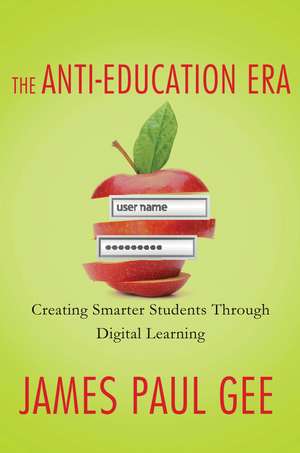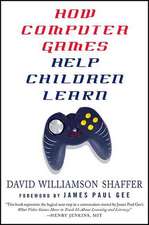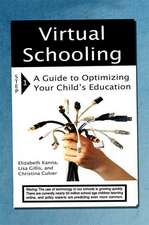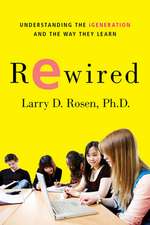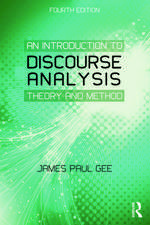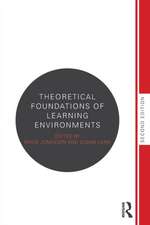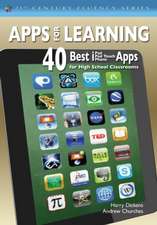The Anti-Education Era: Creating Smarter Students Through Digital Learning
Autor James Paul Geeen Limba Engleză Paperback – 7 ian 2013
One of the first champions of the positive effects of gaming reveals the dark side of today's digital and social media
Today's schools are eager to use the latest technology in the classroom, but rather than improving learning, the new e-media can just as easily narrow students' horizons. Education innovator James Paul Gee first documented the educational benefits of gaming a decade ago in his classic "What Video Games Have to Teach Us About Learning and Literacy." Now, with digital and social media at the center of modern life, he issues an important warning that groundbreaking new technologies, far from revolutionizing schooling, can stymy the next generation's ability to resolve deep global challenges. The solution-and perhaps our children's future-lies in what Gee calls synchronized intelligence, a way of organizing people and their digital tools to solve problems, produce knowledge, and allow people to count and contribute. Gee explores important strategies and tools for today's parents, educators, and policy makers, including virtual worlds, artificial tutors, and ways to create collective intelligence where everyday people can solve hard problems. By harnessing the power of human creativity with interactional and technological sophistication we can finally overcome the limitations of today's failing educational system and solve problems in our high-risk global world. "The Anti-Education Era" is a powerful and important call to reshape digital learning, engage children in a meaningful educational experience, and bridge inequality.
Preț: 107.59 lei
Nou
20.59€ • 21.42$ • 16.100£
Carte disponibilă
Livrare economică 24 martie-07 aprilie
Specificații
ISBN-10: 0230342094
Pagini: 240
Dimensiuni: 158 x 231 x 18 mm
Greutate: 0.28 kg
Editura: Palgrave MacMillan
Locul publicării:Basingstoke, United Kingdom
Notă biografică
Caracteristici
Based on the latest scientific research that shows the inherent challenges facing traditional education, including the negative repercussions of income inequality, confirmation bias, evidence based information in the age of the internet, and Gee's own original research into how technology can create a more participatory forum for learning
Jim Gee is putting together a report on what public policy should be on gaming for the Department of Education - further entrenching his credentials in this field
Gee has been a great Palgrave backlist author - his book first book at Palgrave, What Video Games Have to Teach Us About Learning and Literacy, has netted over 30,000 copies in hardback and paperback over its lifetime
Gee's central argument is that our education system depends on our ability to execute functions that our brains simply weren't designed for - he advocates for revamping teaching styles and testing throughout the country, as well as for complete integration of technology into the classroom
